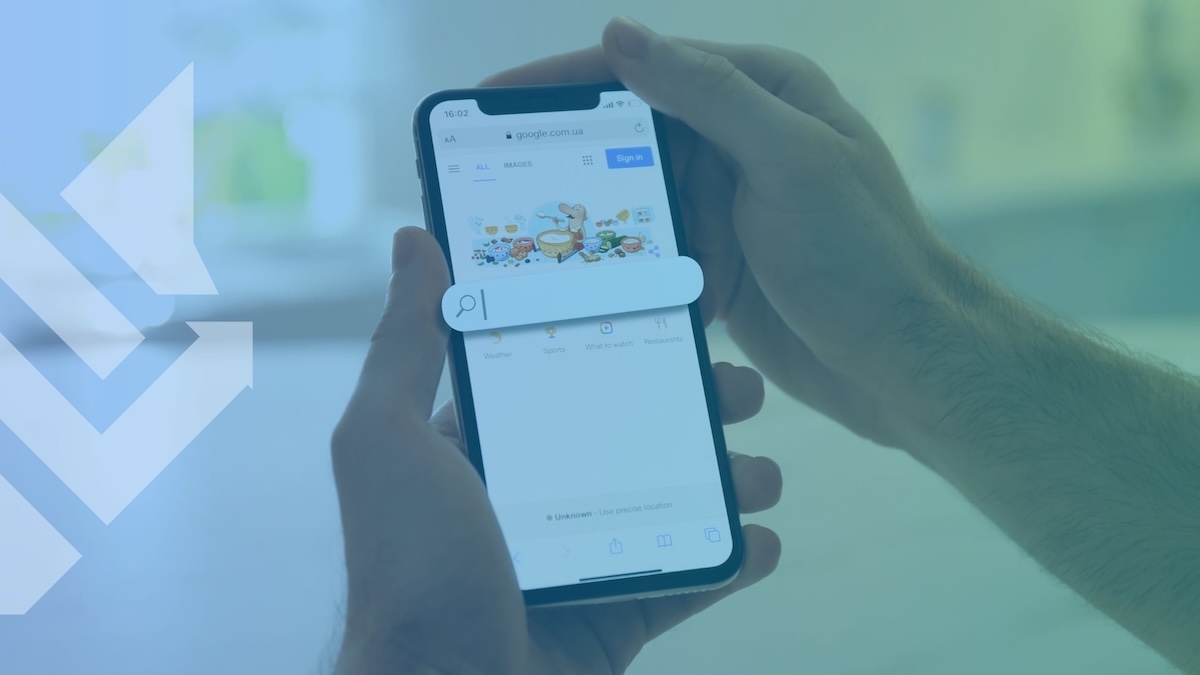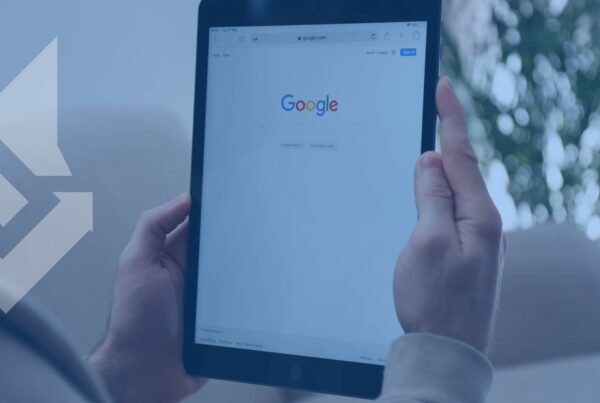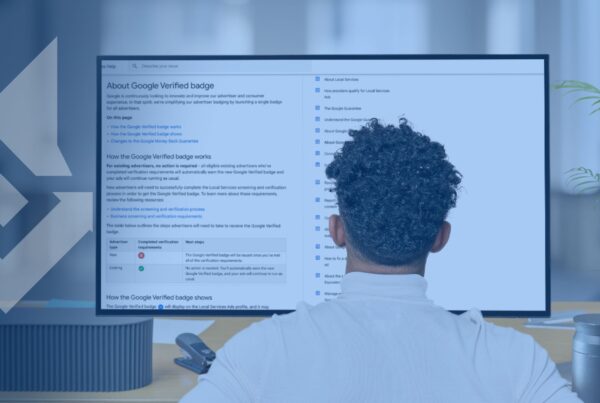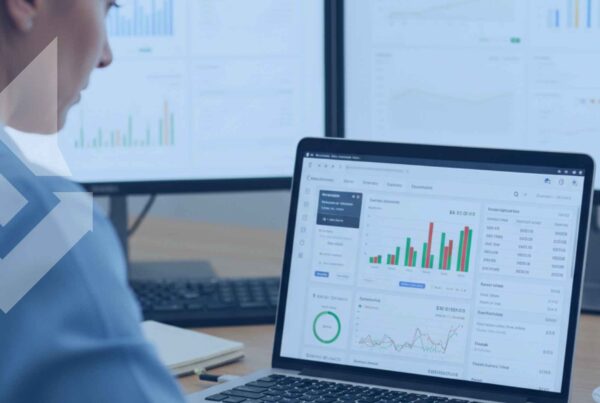Last updated on December 9th, 2025 at 07:43 pm
If you run a service-based business, getting found on Google is one of the best ways to bring in new customers. With various advertising options, it can be tricky to know where to start. While both can help reach new customers, knowing the differences between Local Service Ads vs Google Ads is necessary for success on either platform.
These are the differences between platforms, their pros and cons, and your guide to getting ads right for your business.
Contents
What Are Google Local Service Ads?
Google Local Service Ads (LSAs) are designed for local businesses that provide services in a specific area, like plumbers, roofers, HVAC technicians, electricians, and real estate agents.
These ads appear right at the top of Google search results, often above traditional Google Ads and organic listings. When someone searches for a service (like “plumber near me”), they’ll see a short list of businesses with their name, star rating, phone number, and a badge that says “Google Screened” or “Google Guaranteed.”
Here’s how it works:
- Pay-per-lead: You only pay when a potential customer contacts you through the ad.
- Verification required: Your business must pass Google’s background checks, license verification, and insurance verification to qualify.
- Trust badge: Once approved, your profile will show a “Google Screened” or “Google Guaranteed” badge to help build trust.
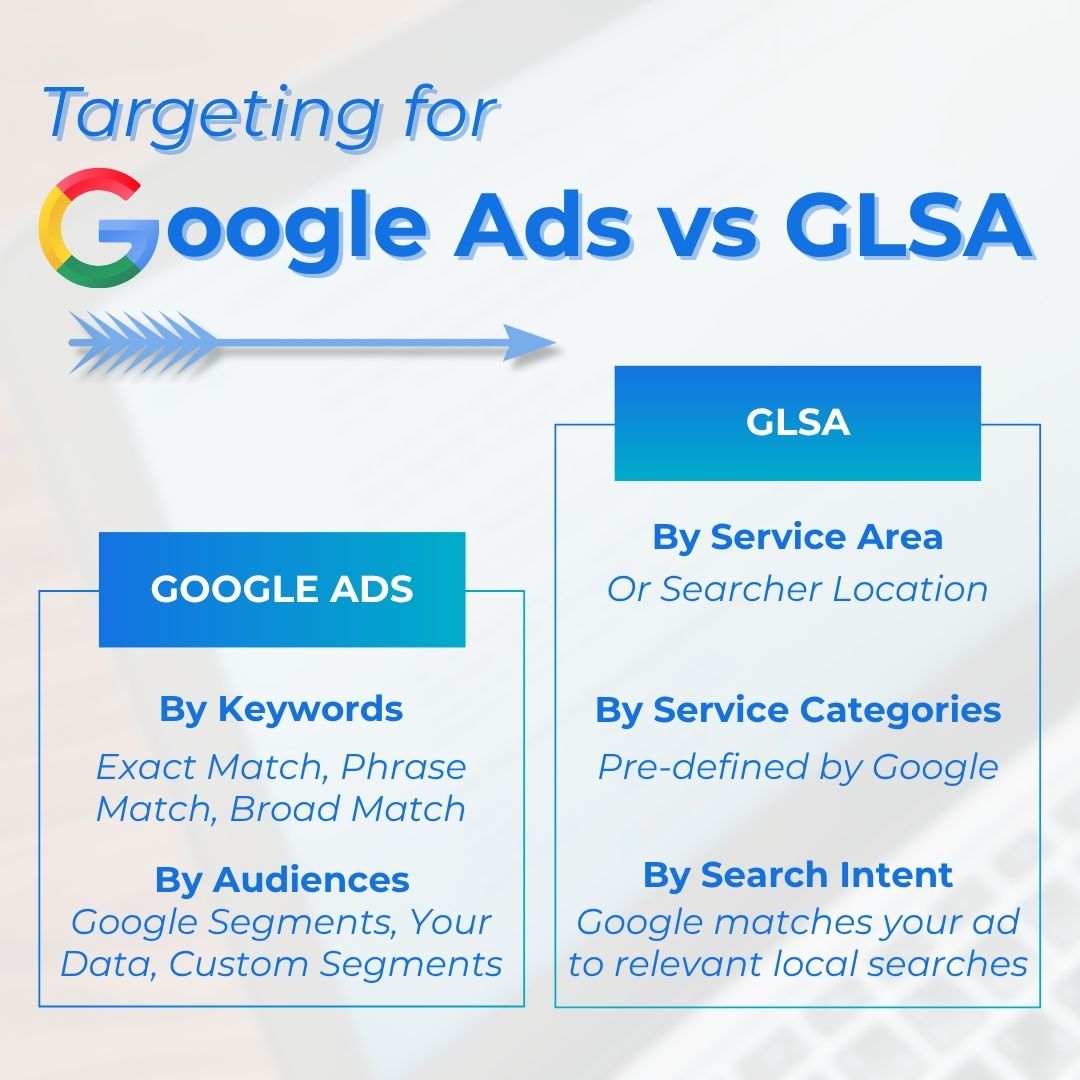
LSAs are a great option if you want to attract customers who are ready to hire a local pro right now.
According to HubSpot’s 2024 State of Marketing Report, businesses using Local Service Ads report a 75% increase in lead generation efficiency.
What Are Google Ads?
Google Ads (previously called Google AdWords) is Google’s broader advertising platform. It allows businesses of all types to promote their services or products across Google Search, Google Maps, YouTube, and Google’s partner websites.
Google Ads works on a pay-per-click (PPC) model. You create ads that show up when someone searches for keywords related to your business. You only pay when someone clicks your ad.
Here are a few key features:
- Flexible targeting: You can choose keywords, locations, demographics, device types, and more.
- Creative control: You write the ad copy and decide where the clicks will lead (usually to a landing page or your website).
- No verification required: Any business can run Google Ads, though quality and relevance affect performance.
Google Ads is ideal if you want more control over your campaigns and the ability to reach people at various stages of the buying process.
Wordstream’s Google Ads Benchmarks noted that Businesses using Google Ads see an average return on investment (ROI) of 200%.
Key Differences at a Glance
| Factor | Local Service Ads | Google Ads |
| Placement | Top of local search results | Search, Display, Maps, YouTube |
| Cost | Pay-per-lead | Pay-per-click |
| Verification | Required (background checks, licenses) | Not required |
| Targeting | Local, service-specific | Keywords, locations, audiences |
| Business Types | Home services, real estate, legal | Any business type |
| Reviews/Trust | Google Screened/Guaranteed badge | Based on ad quality and website experience |
Pros and Cons of Each Option
Local Service Ads
Pros:
- Appear at the very top of search results
- Pay only for actual leads (calls or messages)
- Build trust with a verification badge
- Simple setup and easy to manage
Cons:
- Available only for select industries
- Limited targeting and ad customization
- Lead quality can vary (some leads may not be ready to buy)
Google Ads
Pros:
- Full control over ad copy and targeting
- Works for any type of business (not limited to local services)
- Ability to reach customers across multiple platforms (search, YouTube, display network)
- Flexible budgeting and campaign options
Cons:
- Pay for every click, even if it doesn’t turn into a lead
- Requires ongoing management and optimization to perform well
- More complex setup and learning curve
Selecting an Ad Platform or Balancing Both
Choosing between Local Service Ads vs Google Ads depends on your business goals, your target audience, and your budget.
When to focus on Local Service Ads:
- Your business falls under Google’s eligible service categories (like home services, legal, or real estate)
- You want to generate phone calls or leads from people searching for services in your area
- You want a simple, “set it and forget it” option that brings in leads without a lot of management
When to focus on Google Ads:
- You want to drive website traffic or promote products
- Your business isn’t eligible for LSAs
- You want more control over your targeting, budget, and messaging
- You want to reach customers in different stages of the buying journey (not just those ready to hire immediately)
Why many businesses use both: If your business qualifies for LSAs and you also want to build broader awareness or capture customers earlier in their search, running both LSAs and Google Ads together is a smart strategy.
LSAs can help you capture leads from people who are ready to buy now, while Google Ads can build long-term brand visibility, drive traffic to your site, and support remarketing campaigns.
Running both allows your business to show up multiple times on the same search page, increasing your chances of winning the click or call.
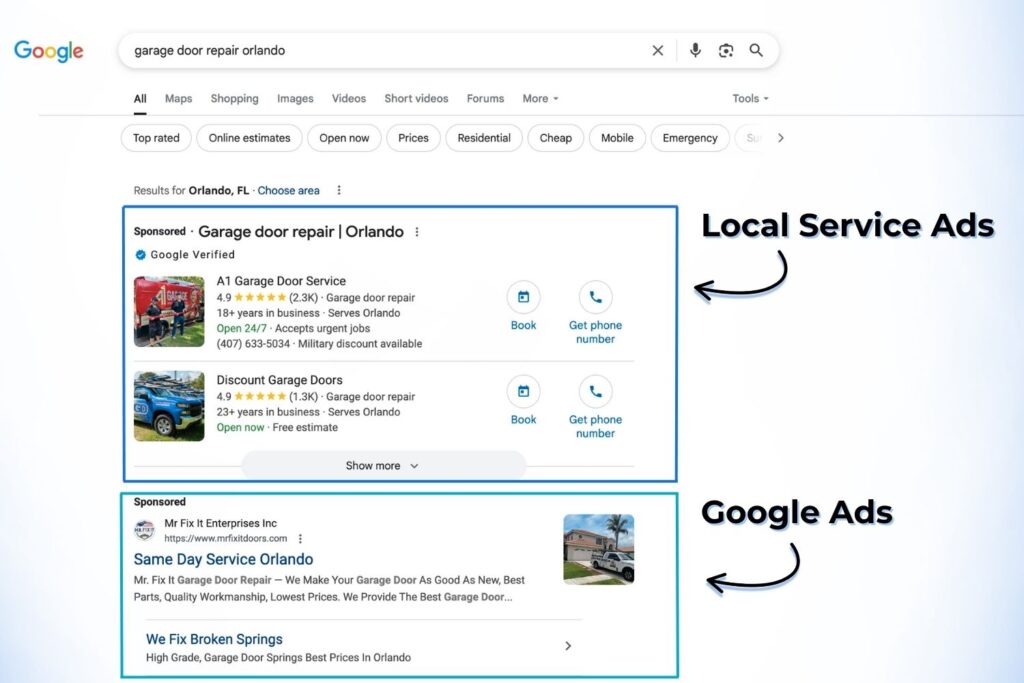
What Else Can Support Your Ad Strategy?
To get the most out of your paid ads, it’s important to pair them with other digital marketing efforts:
- Local SEO: A well-optimized Google Business Profile helps boost your visibility in both organic search and LSAs.
- Reputation management: Positive reviews and quality photos can improve your ranking in LSAs and make your Google Ads more convincing.
- Website optimization: A fast, user-friendly website improves conversion rates for Google Ads traffic.
- Ongoing PPC optimization: Regularly review and fine-tune your campaigns to lower costs and improve performance.
Combining paid ads with a strong online presence, you’ll attract more qualified leads and make the most of your marketing budget.
Conclusion
Now you know Local Service Ads vs Google Ads and the value each one offers a business online. The best choice depends on your business type, goals, and how hands-on you want to be with your marketing.
Many of the most successful businesses use both platforms to create a well-rounded strategy. If you’re ready to improve your advertising results, WolfPack Advising can help. Our team specializes in PPC management, local SEO, online reputation management, and more.
Book a consultation to start building a digital marketing strategy that drives real results for your business.

